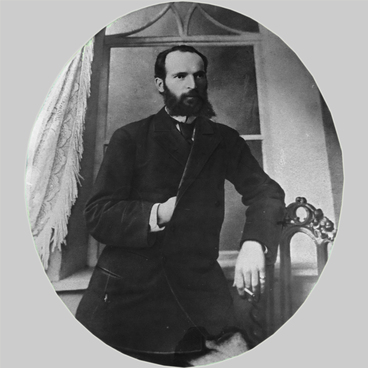There are various old books in Russian and French on the desk in the large sitting room of the Aksakov Family Museum. Home education of nobles assumed that children began to learn a foreign language as of 4-5 years old, so children from the Aksakov family also spoke several languages. It is possible that they also read the original novel ‘Notes and Adventures of a Noble Man Retiring from the Light’ by Antoine Francois Prevost.
The French writer, also known as the exiled Abbot Prévost (the author himself liked to add the prefix ‘exiled’), became famous world-wide as the author of the first ever psychological novel, The Story of the Chevalier des Grieux and Manon Lescaut. Due to the naturalistic description of the characters and social mores of the time, the novel was instantly banned in France and was first published in Holland in 1731. The same fate befell ‘Notes and Adventures of a Noble Man Retiring from the Light’, where Prevost sharply opposed religious obscurantism and duplicity of class morality. Despite the disgraced fate of both the novels and of Prevost himself in France, his books were widely circulated throughout Europe and often crossed into Russia. The large sitting room presents the edition of 19th century notes, the novel fits into 298 pages.
Antoine Francois Prevost was born at the very end of the 17th century, he was the second of five sons of the Crown Prosecutor Lievain Prévost and Marie Duclet. Even as a child, he amazed those around him with his brilliant intellect. From the age of 16, he was a novice in the spiritual order of the Jesuits, then switched to military service. But he could not bear the harsh discipline he returned to the Jesuits, and then left them because of unhappy love. In 1721, he joined the Benedictine monks at Fontenelle Abbey, then took a monastic vow at the Abbey of Jumièges, and spent the next 7 years in various institutions of the order in Normandy. However, even here it was difficult for him to maintain discipline: in 1728 he personally left the monastery of the Abbey of Saint-Germain-des-Pres and was forced into hiding.
Prevost lived at times in England, at times in Holland, doing literary work and trying to enlist the patronage of noble patrons of the arts. His literary fate was ambiguous: his contemporaries read his great novels and listened carefully to what he published. Nevertheless, as early as the beginning of the 19th century, the fame of his works faded, his publicism became outdated, and the very name of Abbot Prevost lost its former literary weight.
The French writer, also known as the exiled Abbot Prévost (the author himself liked to add the prefix ‘exiled’), became famous world-wide as the author of the first ever psychological novel, The Story of the Chevalier des Grieux and Manon Lescaut. Due to the naturalistic description of the characters and social mores of the time, the novel was instantly banned in France and was first published in Holland in 1731. The same fate befell ‘Notes and Adventures of a Noble Man Retiring from the Light’, where Prevost sharply opposed religious obscurantism and duplicity of class morality. Despite the disgraced fate of both the novels and of Prevost himself in France, his books were widely circulated throughout Europe and often crossed into Russia. The large sitting room presents the edition of 19th century notes, the novel fits into 298 pages.
Antoine Francois Prevost was born at the very end of the 17th century, he was the second of five sons of the Crown Prosecutor Lievain Prévost and Marie Duclet. Even as a child, he amazed those around him with his brilliant intellect. From the age of 16, he was a novice in the spiritual order of the Jesuits, then switched to military service. But he could not bear the harsh discipline he returned to the Jesuits, and then left them because of unhappy love. In 1721, he joined the Benedictine monks at Fontenelle Abbey, then took a monastic vow at the Abbey of Jumièges, and spent the next 7 years in various institutions of the order in Normandy. However, even here it was difficult for him to maintain discipline: in 1728 he personally left the monastery of the Abbey of Saint-Germain-des-Pres and was forced into hiding.
Prevost lived at times in England, at times in Holland, doing literary work and trying to enlist the patronage of noble patrons of the arts. His literary fate was ambiguous: his contemporaries read his great novels and listened carefully to what he published. Nevertheless, as early as the beginning of the 19th century, the fame of his works faded, his publicism became outdated, and the very name of Abbot Prevost lost its former literary weight.



